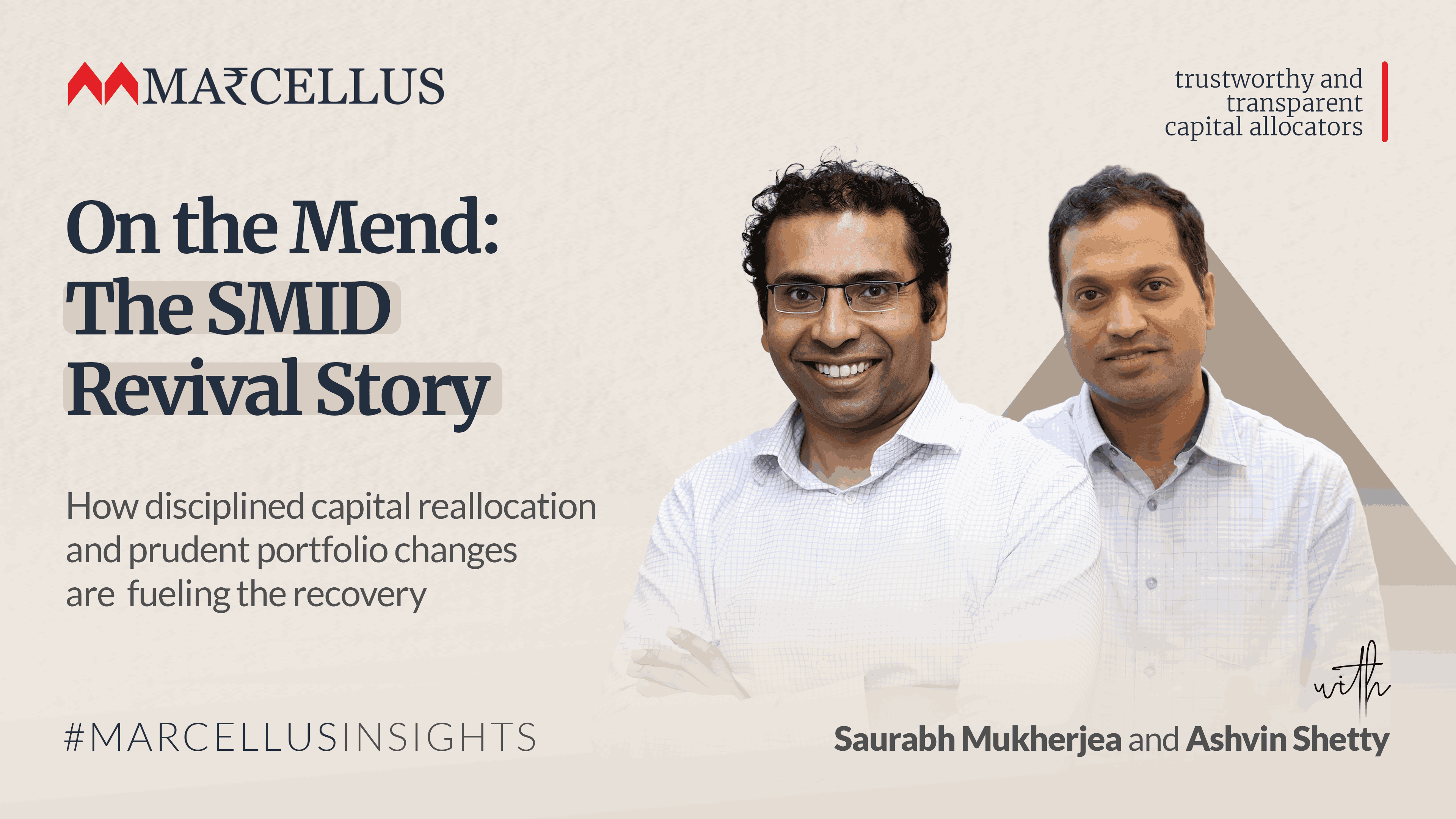Arindam brings over a decade of global investing experience, having spent nearly 10+ years in the United States with Principal Global Investors (PGI). He began his career as a Quantitative Analyst before transitioning to fundamental equity research, where he served as the lead analyst covering U.S. and Global Industrials and Utilities. In early 2019, he broadened his investment mandate to include Emerging Markets and oversaw India public equity investments across PGI’s global equity platform. PGI manages more than 100B in equities. His primary fund during this period managed $5B+ in assets. Prior to his investment career, Arindam worked as a Lead Software Engineer in product research and development at Oracle Corporation.
Qualifications: Arindam holds a Bachelor of Technology (First Class with Distinction) from NIT Warangal and earned his MBA from Duke University’s Fuqua School of Business, where he graduated with highest honours in Finance.
Articles by team Marcellus
Marcellus' Portfolio Updates & Insights - February 2026
marcellus.in From Our CIO’s Desk RBI’s Report Flags Indian Consumer’s Debt Trap For the past year, we have warned that the Indian middle class is financing its lifestyle through a precarious reliance on debt. The RBI’s latest Financial Stability Report (FSR) has now validated these concerns, signalling that the “consumption story” is hitting a […]
READ MORE

Marcellus' Portfolio Updates & Insights - January 2026
marcellus.in From Our CIO’s Desk How Four Mega-Reforms by the Indian Government and the RBI Dismantled the Barriers to International Capital. RBI data reveals a staggering 58% surge in capital outflows from India over the past 5 years. This shift underscores a critical imperative: the necessity of investing in dollar-denominated assets. This is particularly […]
READ MORE

Profiting from the Global Upsurge in Electricity Demand
Thanks to a remarkable surge in power demand, the world needs an extra 400 gigawatts of electricity each year. For supply to keep up with this demand surge means $600 billion per year of capex for the next five years. This explains why major industrial firms across the world are currently experiencing record or multi-year […]
READ MORE






